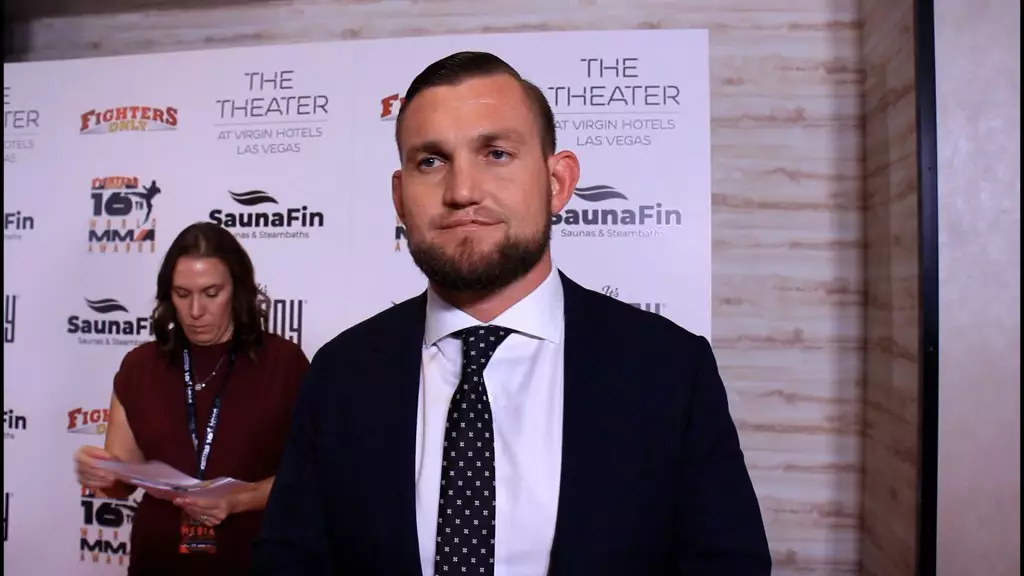In the realm of mixed martial arts (MMA), fighters often display an unyielding spirit, battling through physical and mental hardships. However, for Ian Heinisch, the decision to step away was not rooted in weakness but necessity. His announcement in July 2023 of an indefinite break from MMA—what he now refers to as retirement due to brain trauma—marks a crucial juncture in his life. With a record of 14 wins and 5 losses, Heinisch’s career had many highlights. Nonetheless, the toll that such a robust career has had on his health ultimately led him to prioritize his well-being over the pursuit of glory in the octagon.
Living in a constant state of tension, Heinisch’s bravery in facing his mental and physical struggles is commendable. Before he chose to reveal his vulnerability, he concealed the symptoms of his condition—a period that lasted year and a half. Anxiety and confusion plagued him during this time, culminating in a profound moment when he found himself lost in thought while driving. This pivotal experience led him to a shocking realization: the urgent need to reclaim his ability to feel “normal” is paramount.
Navigating Mental Health in Combat Sports
Heinisch’s account underscores a crucial, often neglected conversation surrounding the mental health of athletes, particularly in high-contact sports like MMA. In an environment where fighters regularly absorb and deliver punishment, it is imperative for individuals to recognize the signs of brain trauma and to heed their bodies’ warnings. Heinisch’s journey takes a turn as he highlights the importance of rest and recovery. His story becomes a cautionary tale to many up-and-coming fighters who might prioritize competition over their long-term health.
His struggle resonates as he admits to battling an internal conflict between his passion for the sport and his well-being. The moment he decided to prioritize his health, without the compulsion to compete, signals a shift in perspective—both for himself and potentially for fellow fighters. It also raises essential questions about how the sport manages its athletes’ health, especially when prolonged exposure to danger can lead to irreversible damage.
Fortunately, Heinisch is among those who have found avenues toward recovery. His exploration of various treatments, including stem cell therapy, offers hope to others potentially facing similar challenges. As he works towards normalization of his health, Heinisch is not merely focusing on his well-being but also embracing life beyond the cage. His foray into cryptocurrency and business ventures illustrates a commendable shift in ambition, showcasing how athletes can redefine their paths post-career.
Amidst the turbulence, Heinisch reflects on the transformative power of MMA, not only as a sport that reshaped his identity but as a life-saving force when he found himself at rock bottom. The adversity he faced in a foreign prison cell strengthened him and ultimately propelled him into the top ranks of MMA. Heinisch’s journey is a powerful reminder of how far determination can take someone but, more importantly, how one’s mental health must be prioritized along the way.
Heinisch’s journey is a complex tapestry woven from both triumph and hardship. Despite the frustration of stepping away from something he loves, he expresses gratitude for the lessons learned along the way. Recognizing the duality of his experience—loving the sport yet needing to leave it—demonstrates a level of maturity that is often lacking in the fast-paced world of combat sports. He has emerged with a deeper understanding of what it means to be blessed, not just in terms of accolades but through the relationships and platforms he’s built along the way.
Ian Heinisch’s story is unique, yet it echoes the experiences of many athletes. His transparency regarding mental traumas in a sport often dominated by toughness sends a powerful message. As he moves forward into life’s next chapter, he hopes his journey can encourage others to prioritize mental health—reinforcing that healing is an integral part of any athlete’s life narrative.

